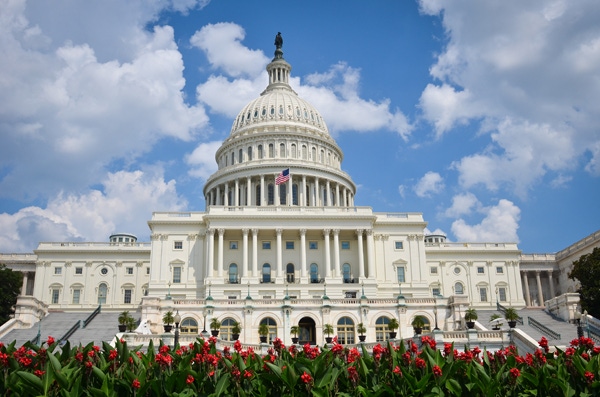Opinion: How do we recognize an immigration crisis?
Politicians from both sides of the aisle have fought about immigration for a long time, yet we’re no closer to a logical, sensible solution. Here’s why that won’t change.
February 6, 2019

Immigration seems, for some reason, to be very difficult for many people to understand; to logically consider the factors and consequences. For many, including most politicians, illegal border crossings are a far distant problem.
Most frustrating is the success of the left's blurring of the line, both in language description and in thinking, between immigrant and illegal immigrant. Those of you familiar with Michael Savage's radio show know his show theme for decades before our present crisis has been "borders, language and culture."
His prescience, of course, was kick-started by living in California, giving him a front row seat from the earliest times of the political and cultural shift there. He saw the unchecked illegal immigration and California's seeming inability to understand or care at the beginning of the trickle of illegals; the consequences of providing education, health care and welfare assistance to illegals. The trickle became a flood.
But then, the left never has understood incentives. Offer people food, clothing, shelter, education for their kids and access to healthcare and you will get more and more illegals.
Too many and not enough
For those in industries fighting constant labor problems, the problem of lots of illegals and too few legal immigrants or guest workers is a daily problem.
Gerald Seib is an editor for the Wall Street Journal. He noted in a recent column that immigration issues (he doesn't use the word "illegal") usually come to a head during tough economic times, when folks fear foreigners taking jobs and driving down wages. It is different this time, he contends, because this is a time of economic growth and higher wages, ("Wall Marks Deep Divide for Americans," Wall Street Journal, 01/22/2019.)
He forgets that the growth and low unemployment are only recent consequences of the Trump administration's pushing tax and regulation cuts through Congress. Before that was a decade of lousy to stagnant growth, frozen wages and a government constantly harassing business with new regulations.
Even before that, politicians had been unable to solve the illegal immigration problems. Remember the Christmas Ted Kennedy and John McCain tried to slip a "comprehensive immigration reform" bill through while most everyone's attention was focused on the holiday?
Seib is struggling to understand why the issue is so fraught again.
I think people in Washington are so far away from the issue, both mentally and physically, that they just can't get their head around it.
The rest of us can get a taste of the issue with the proliferation of sanctuary cities, whether we live close to one or pay attention to the national news. The list of murders committed by illegals has risen to a frightening cacophony. The nearly unimaginable conditions among homeless squatters and campers, even blocking of some lanes of streets and bridges, are terrible signs of descent into chaos.
Somehow, the government does not concern itself with the border ranchers who live in a war zone every day. I'll never forget the rancher's wife who contended you haven't lived until you've found yourself whispering into your cell phone, crouched in the cabinet under the kitchen sink, while wild near-beasts ransack your home, hunting valuables or yourself.
American dream?
The problem is, there are still many Americans of several generations who still remember, as Peggy Noonan put it, "When Character Was King." This deceptive, obtuse statement people make that America was built by immigrants is part of this imaginary tale the left has built up.
Yes, immigrants but legal immigrants, when there was no welfare, education, food stamp and healthcare freebies to be had. Legal immigrants who came here—in controlled numbers and with preliminary legal and health checks first—who wanted a part of the American dream.
That dream was a chance to work, to make something of themselves, to become American citizens, not just take American handouts. They may have lived together in geographic areas but they did not try to bring the worst of their previous country with them and recreate slums, criminal groups, oppressive government and primitive, regressive health and living standards from centuries ago.
There were decades when the U.S. government allowed no immigration, while the nation and the last batch of immigrants were digested and assimilated themselves.
Seib characterized the current political debate as a "fight about the character of America—in particular, whether this is a country that will embrace Central Americans seeking asylum or see them as a threat. And lines have hardened."
It seems incredible that Seib poses this as a question. There are millions of people from both Central and South America who would like to come here. And it's a question as to whether we should just allow them to waltz in with no legal, criminal, language or health checks? With no determination as to education, marketable skills or political/terrorist ties?
And while agriculture, construction, hospitality and landscape companies all need labor or semi-skilled labor, that doesn't mean there is a place in America for the 20 or 50 million people who would like to come here, illiterate in even their own language, not speaking English, some with diseases and most without vaccinations or education. Frankly, many of them have no understanding of, or capability of living in, a modern, civilized country. This is not 1840. It takes more than a strong back to survive and make a citizen's contribution to society today.
Seib brought up a survey question from a mid-2017 Wall Street Journal/NBC News poll, asking whether "immigration adds to the character and strength of America by increasing its diversity and bringing in new talent or detracts from American character by putting burdens on government services and creating language barriers." Some 64% of all American voters in the sample said "yes," while 38% of Trump voters said "yes."
First off, the question didn't even include the words "legal" or "illegal." It is unconscionable that the pollsters didn't even consider it important to clarify whether the immigrants were legal or illegal.
Secondly, this worship of "diversity" so prevalent among the left is a false goal. We have plenty of diversity here already.
Ask some of the companies or communities trying to deal with a dozen languages and different cultures in a plant or small town. The term as a goal has no root in a list of a civilization's pressing needs.
The group of minorities and fringes that make up the Democrat party just looked at themselves, realized what a diverse group they were and came up with a political descriptive tool, "diversity" and sold it as one of civilization's highest goals.
Of course, bringing in new talent, if accompanied by other requisite attributes like English, some education, good health and a desire to join America, is good if it is a talent we need.
Like all polls, however, they need to be examined and vetted. These days too often pollsters don't even bother to balance race, sex or political affiliation in their survey group, since that would hinder their real goal in polling—pushing the electorate in one direction or another, not finding out what people really think.
Regardless of the left-leaning voters' personal opinions, it is impossible to separate out their true opinion from their absorption of the Democrat party's mantra that open borders are good because it brings in more people likely to become dependent on the government and vote Democrat.
Schumer’s comment on the partial shutdown, “We hope the President has learned his lesson.”
Pelosi’s view of her mission: “I am an appropriator.”
No one among most of Washington’s leadership has a compass or any sense of dead reckoning.
Steve Dittmer is a longtime beef industry commentator and executive vice president of the Agribusiness Freedom Foundation.
About the Author(s)
You May Also Like




.png?width=300&auto=webp&quality=80&disable=upscale)
